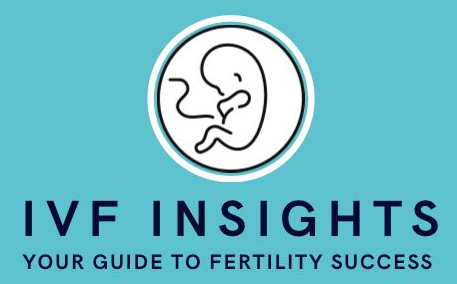
Deciding Between Intrauterine Insemination vs In Vitro Fertilization: Which Is Right for You
Infertility can be a challenging journey, and for many couples, exploring fertility treatments becomes a crucial step in their quest to start a family. In this article, we'll delve into the world of fertility treatments and compare two commonly used options: Intrauterine Insemination vs In Vitro Fertilization (IVF vs IUI). By the end, you'll have a clearer understanding of these treatments and how to determine which one may be right for you.
You Might Also Like: Difference Between IVF, IUI and ICSI: What You Should Know
Understanding Infertility and Fertility Treatments
Infertility is a medical condition characterized by the inability to conceive after a year of unprotected intercourse. It affects millions of couples worldwide, and the causes can be diverse, ranging from issues with ovulation and sperm quality to structural problems in the reproductive system.
When natural conception isn't occurring, couples often turn to
fertility treatments to realize their dreams of parenthood. These treatments offer assisted reproductive techniques designed to increase the chances of pregnancy. Fertility treatments come in various forms, and the choice of treatment depends on the underlying causes of infertility, the couple's preferences, and the advice of a fertility specialist. Two of the most common treatments are Intrauterine Insemination (IUI) and
In Vitro Fertilization (IVF).
You Might Also Like: IVF, IUI & ICSI: How To Optimize Chances Of Success
Exploring Intrauterine Insemination (IUI)
IUI Defined:
Intrauterine Insemination, or IUI, is a procedure that involves placing washed and prepared sperm directly into the uterus. This procedure aims to facilitate the sperm's journey to the egg, increasing the chances of fertilization.
Suitable Candidates for IUI:
IUI is often recommended for couples dealing with issues such as male infertility, cervical mucus problems, or unexplained fertility problems. It is less invasive and less expensive than IVF.
The IUI Process:
The IUI process begins with monitoring the woman's cycle to determine the optimal time for the procedure. Sperm is prepared and inserted into the uterus using a thin catheter. The procedure is relatively quick and minimally invasive.
IUI Success Rates and Limitations:
Success rates for IUI vary and are influenced by factors such as the woman's age and the underlying cause of infertility. IUI may not be as effective in cases of severe male infertility or tubal blockages.

Unpacking In Vitro Fertilization (IVF)
IVF Defined:
In Vitro Fertilization, or IVF, is a more complex and invasive fertility treatment. It involves the retrieval of eggs from the woman's ovaries, fertilization with sperm in a laboratory, and the transfer of the resulting embryo(s) into the uterus.
Suitable Candidates for IVF:
IVF is often recommended for couples with more complex infertility issues, such as tubal blockages, severe male infertility, endometriosis, or advanced maternal age. It's also an option for couples who have not had success with IUI.
The IVF Process:
IVF involves several stages, starting with controlled ovarian hyperstimulation to produce multiple eggs. These eggs are retrieved, fertilized in the lab, and monitored for growth. One or more embryos are then selected for transfer into the uterus.
IVF Success Rates and Limitations:
IVF success rates tend to be higher than IUI, especially for certain fertility issues. However, it can be a more expensive and emotionally challenging option. The success of IVF is influenced by factors such as the woman's age, the quality of the embryos, and the skill of the fertility clinic.
Comparing Intrauterine Insemination vs In Vitro Fertilization
Key Differences:
The primary differences between Intrauterine Insemination vs In Vitro Fertilization lie in their complexity, cost, and success rates. IUI is generally less expensive and less invasive but has lower success rates. In contrast, IVF is more effective but comes with a higher price tag and greater physical and emotional demands.
The Role of Medical Evaluation:
A crucial aspect of deciding between Intrauterine Insemination vs In Vitro Fertilization is the thorough evaluation of the couple's specific fertility issues. A fertility specialist will consider factors like age, the presence of male factor infertility, the condition of the fallopian tubes, and the overall health of the partners.
Cost Considerations:
Fertility treatments can be expensive. IUI is typically more affordable than IVF, making it an appealing choice for couples with budget constraints. IVF costs can add up due to multiple procedures and medications.
Emotional and Physical Aspects:
The emotional and physical toll of fertility treatments should not be underestimated. IUI is generally less physically demanding and stressful than IVF, which can involve hormone injections, egg retrieval, and more invasive procedures.

Intrauterine Insemination vs In Vitro Fertilization: Determining the Right Fertility Treatment for You
Choosing between Intrauterine Insemination vs In Vitro Fertilization is a highly individualized decision that requires a thorough assessment of your unique circumstances and preferences. Here are some key considerations:
Consult a Fertility Specialist:
The first step in making this decision is to consult a fertility specialist. They can provide a thorough evaluation and recommend the most appropriate treatment based on your specific situation.
Personalized Factors:
Consider your age, the underlying causes of infertility, your financial situation, and your emotional readiness for the chosen treatment. Your personal values and preferences also play a role.
Communication with Your Partner:
Open and honest communication with your partner is essential. Both of you should be on the same page when making this important decision. Discuss your feelings, hopes, and concerns.
Navigating the Decision-Making Process
The decision of whether to choose Intrauterine Insemination vs In Vitro Fertilization: can be a complex one, but it's important to remember that both treatments have helped countless couples achieve their dreams of parenthood. Here are some practical steps to help you navigate this decision:
Consult with a Fertility Specialist:
Seek the expertise of a qualified fertility specialist who can assess your situation and provide personalized recommendations.
Educate Yourself:
Take the time to learn about both IUI and IVF. Understanding the processes, success rates, and costs is essential.
Consider Your Unique Factors:
Reflect on your age, the underlying causes of infertility, your financial situation, and your emotional readiness for the chosen treatment. These factors should guide your decision-making.
Seek Emotional Support:
Fertility treatments can be emotionally challenging. Reach out to support groups, friends, or therapists who can help you cope with the emotional aspects of the process.
Take One Step at a Time:
It's okay to start with a less invasive treatment like IUI and progress to IVF if necessary. Your fertility specialist can guide you through this process.
Stay Informed:
Stay engaged with your healthcare team. Ask questions, seek clarification, and ensure you fully understand the treatment plan.
Patience and Resilience:
Remember that the journey to parenthood can be a marathon rather than a sprint. Be patient with yourself and your partner, and stay resilient in the face of setbacks.

In the world of fertility treatments, the choice between Intrauterine Insemination vs In Vitro Fertilization is a pivotal decision that can significantly impact your path to parenthood. By consulting with a fertility specialist, evaluating your individual factors, and considering your emotional readiness, you can make an informed choice.
Every couple's journey is unique, and while some may find success with IUI, others may opt for the more complex but often more effective IVF. Remember that the goal of both treatments is to help you achieve your dream of having a child. The right choice is the one that aligns with your specific needs, values, and circumstances.
Navigating the world of fertility treatments is a journey that requires determination and resilience, and it's one that can ultimately lead you to the joy of parenthood. As you embark on this path, keep in mind that the support of healthcare professionals and the love and understanding of your partner are valuable resources on your journey to starting a family.



